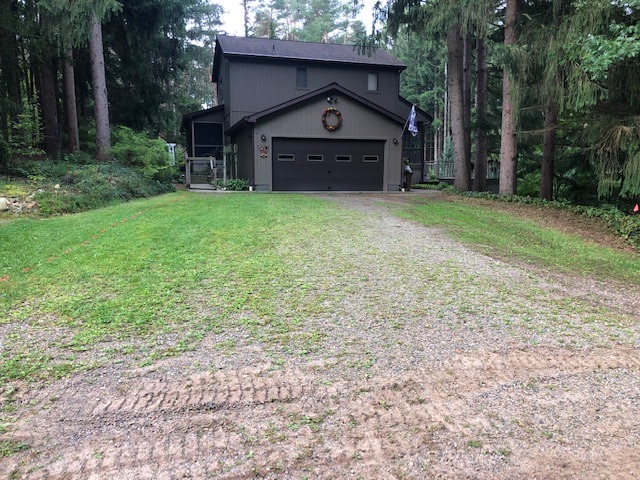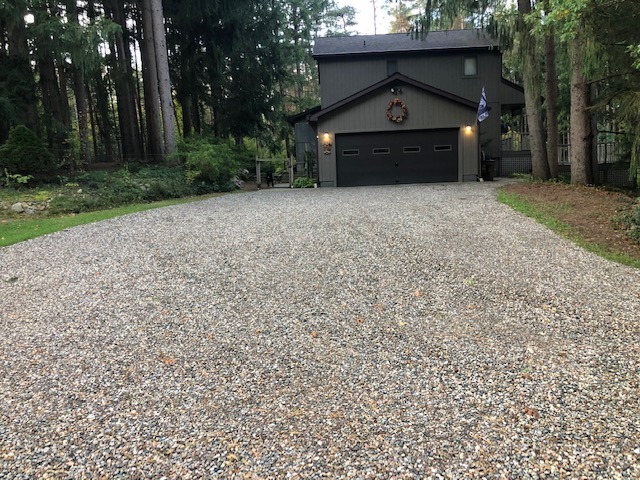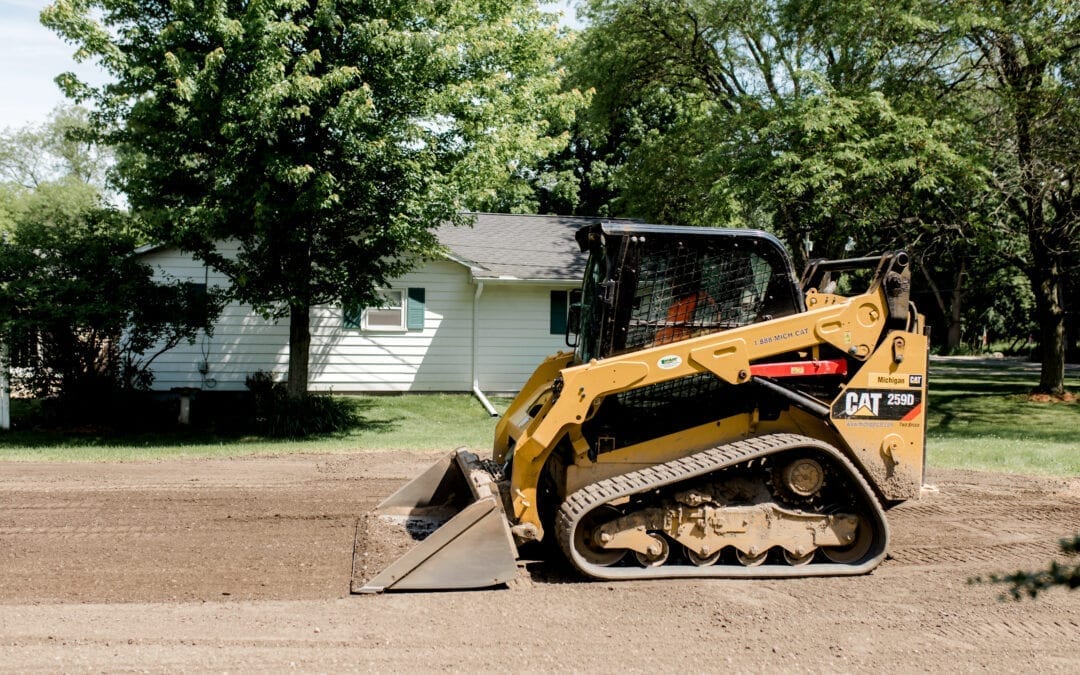Lester Brothers has been performing driveway installations for over 30 years, much of how this business got started. With 30 years of experience it’s pretty safe to say that we have finally perfected the techniques needed in order to install a nice clean driveway with sharp edges. There are many different factors to take into account when it comes to driveway installations: existing ground, gravel type, driveway usage, and budget. Below, we talk about the proper steps taken from beginning to end that a customer of a new driveway would take and experience.
- The first step would be to contact Lester Brothers to arrange for an estimator to come out and meet with you on your driveway. In doing this, we are able to gain a better understanding of what kind of usage this driveway would have and what’s the best route for you.
- After a design and price has been agreed upon, we would begin excavation on your driveway. During this time, the customer would normally not be able to use the excavated area until work is completed. Depending on the size and scope of the work involved, we would be finished the same day (weather permitting).
- We would then have an onsite follow-up appointment with you, going over everything that was done during excavation and make sure all needs and wants of your driveway design were met.
Lester Brothers has a wide array of driveway gravels to offer its customers, many of which are screened and blended by us. Being able to screen and process our own gravels gives us an edge on pricing, allowing us to offer much lower rates than our competitors. All gravels work best when compacted. Freshly spread gravel, not compacted, will soak up water when it rains and become a muddy mess. Drive on, roll or compact your gravel for best results. All gravel will get harder after it dries out. Spring thaw or muddy areas will use double the amount of gravel due to the soft ground and high moisture content. Larger stone helps in the spring or muddy areas and may be covered with smaller stone later on. The more crush, the better the gravel.


Material Options
22 Road Gravel (MDOT Spec)
Basic road gravel design: some crushed stone also has sand, clay, and natural stone. Cheapest gravel commonly available, can be dusty though. Brown in color, 1″ minus stone size.
21AA Natural Stone (MDOT Spec)
100% natural stone crushed to 1″ minus: This stone is very popular for soft low areas. The stone is brown in color, slightly more expensive than crushed concrete. Commonly used for driveways, parking lots, and roadways.
Crushed Concrete (MDOT Spec)
Excellent performing gravel, 100% recycled broken concrete crushed to 1″ minus stone or pieces. Light gray in color, one of our number one sellers when it comes to commercial and residential driveway installments. Although it’s good performance gravel, we do see some complaints on dust problems due to the fine material that is mixed in with the gravel.
Crushed Asphalt
Another one of our most popular driveway gravels, and an overall Lester Brothers favorite. The crushed asphalt, when spread down properly, can last for many years without any grading required (under properly weighted loads). The material performs best after being rolled with a commercial roller, as that allows the material to seal properly, not allowing any moisture to soak into the material. It’s also a fan favorite due to the low amount of dust that it sheds off when traffic is over it.
21AA Limestone
This material is very good when it comes to residential and commercial driveways. Although it’s a good performer, the cost is much higher than that of other stones we offer. This material, much like the recycled asphalt, performs best when compacted, but does have more dust than the asphalt.
#6 Limestone
This particular type of gravel is a popular one among those who are not operating on any kind of budget when it comes to driveway or parking lot installation (or rehab). This material is one of the cleaner materials we offer since it contains no fines. Although it’s cleaner with no fines, a customer will also have a harder time with this material compacting and will often find that it remains a pretty loose material during the life of the driveway.


Looking for someone to repair my crushed blacktop driveway
I need a driveway put in. It is now old gravel and a mess. If I could set an appointment for a estimate that would be great!